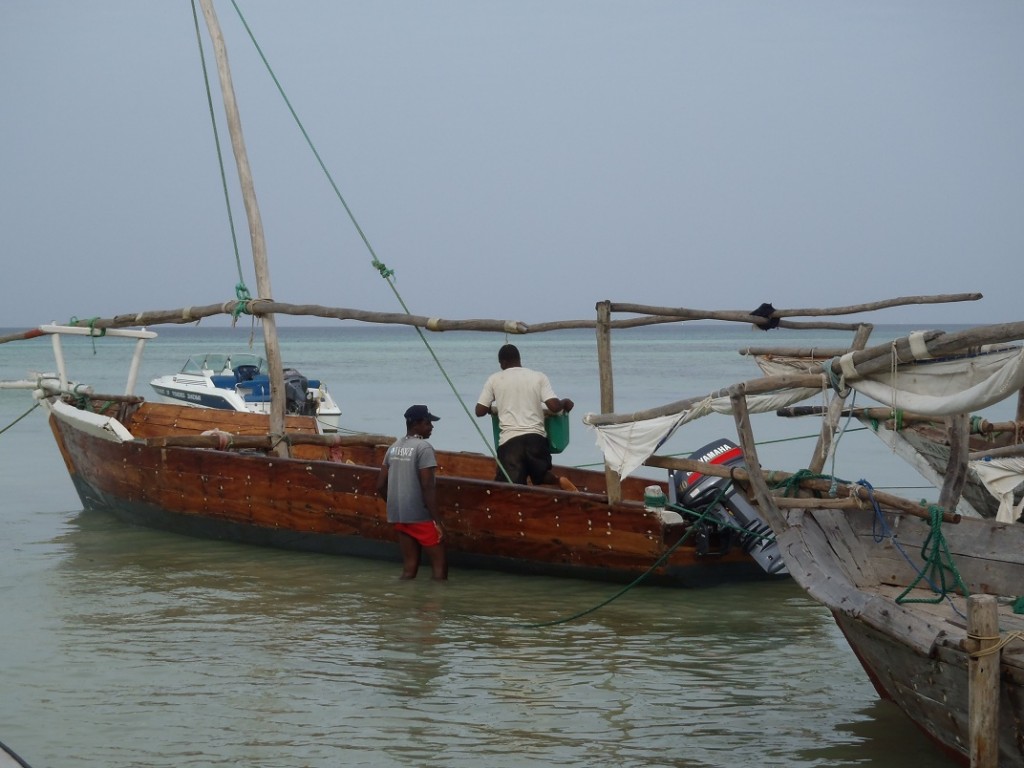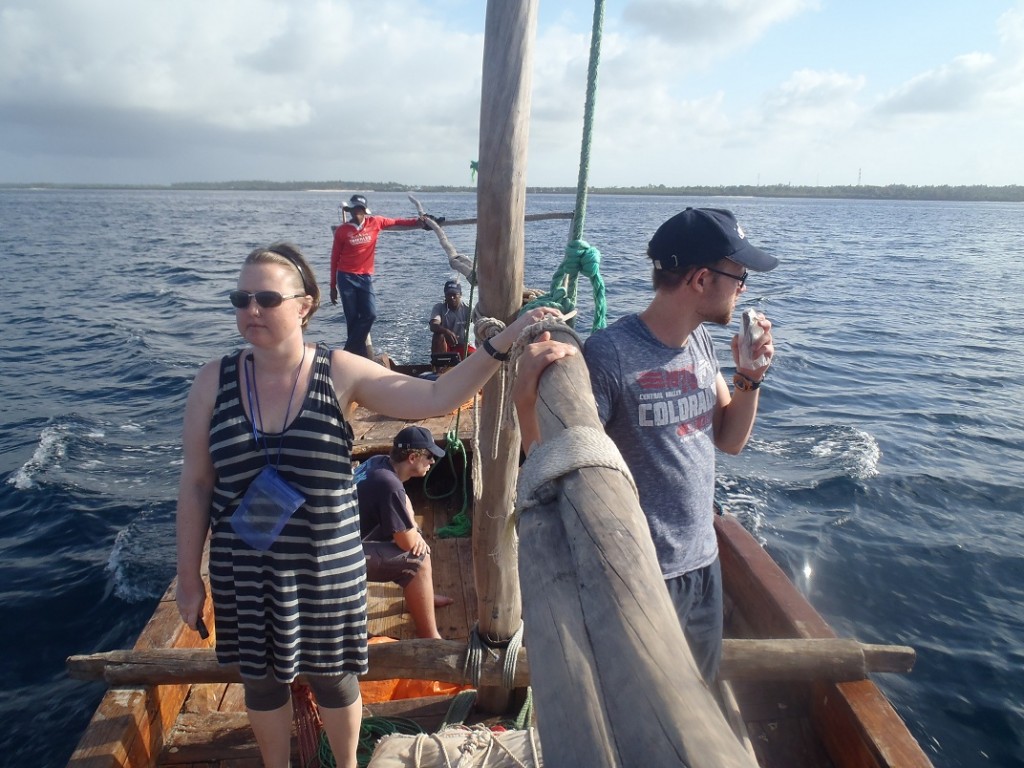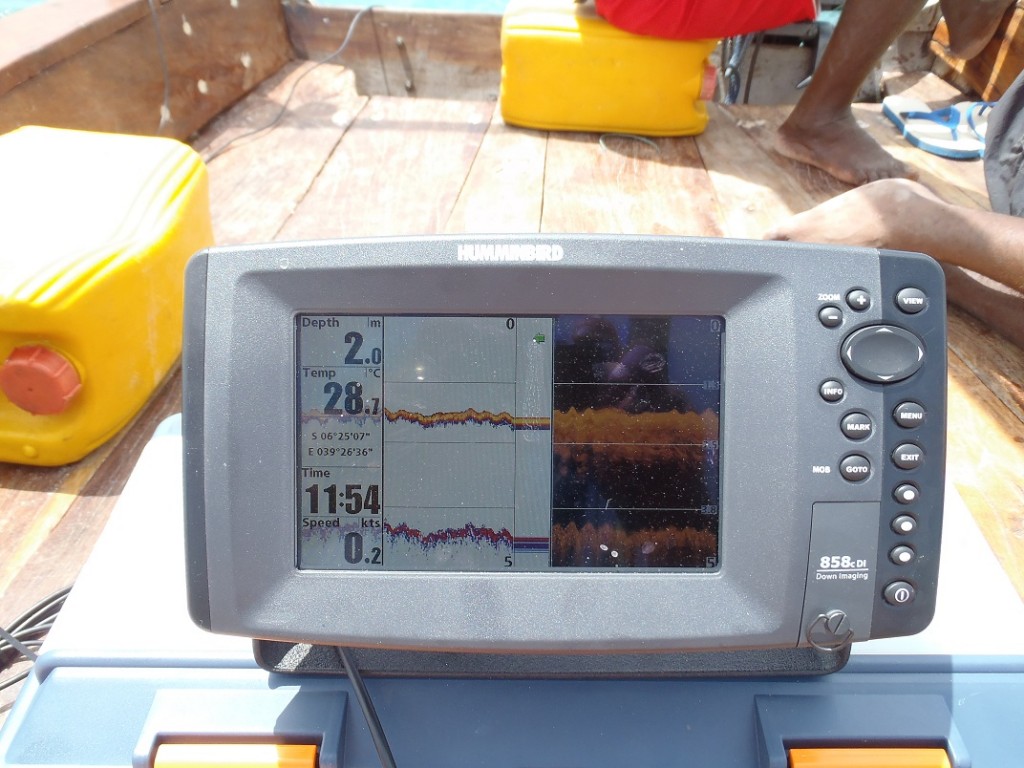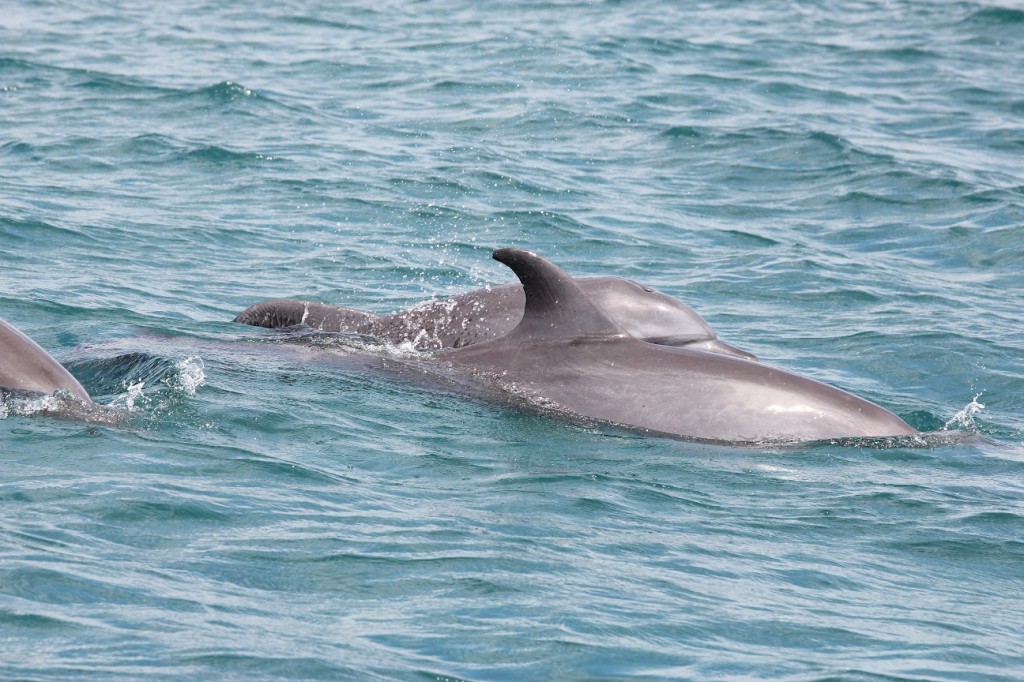Dolphins, sharks and ”pingers” – it’s all happening in Zanzibar
Fig.1. Indo-Pacific bottlenose dolphins in Menai Bay, Zanzibar
Greetings from a new research season on Zanzibar. Following on the success from last summer’s humpback whale project (see blogs at https://blogs.ncl.ac.uk/marinescience/category/zanzibarhumpbackwhaleproject and Face book http://www.facebook.com/pages/Zanzibar-Humpback-Whale-Project/128089323948221) we are now back in full swing with 3 new studies. This time we are focussing on dolphins and sharks. Dr Per Berggren is joined by MPhil students Will Joyce and Andrew Temple and post graduates Stina Nyström from Sweden and Yussuf Salmin from Zanzibar.
We had a slightly frustrating first 24 hours because none of our luggage arrived when we did. That meant almost all of our equipment and personal effects where stuck somewhere between Newcastle and Zanzibar. Luckily the luggage arrived the following day and we could start setting up equipment and enjoy a change of clothes.
We spent the first couple of days applying for research permits, food shopping and visiting colleagues at the Institute of Marine Sciences, University of Dar es Salaam and moving in to our home for the next 3 months in Kizimkazi-Dimbani on the south coast of Zanzibar.
We will have a busy season ahead of us with 3 new studies. The first study focus on the distribution and ecology of dolphins in Menai Bay Conservation Area. This will be investigated using GIS analysis of line transect survey data that will be collected along a minimum of 100 transects covering the bay. We will record boat and fishing activities, bottom type and topography and dolphins to investigate factors affecting dolphin occurrence and behaviour.
 Fig 2. Our trusted survey boat “Nyngumi” (Whale) with our two boat crew Khamis & Foum.
Fig 2. Our trusted survey boat “Nyngumi” (Whale) with our two boat crew Khamis & Foum.
 Fig. 3. Andrew and Stina on effort scanning for dolphins along the transect.
Fig. 3. Andrew and Stina on effort scanning for dolphins along the transect.
 Fig. 4. The depth sounder recording, temperature depth, bottom topography & fish.
Fig. 4. The depth sounder recording, temperature depth, bottom topography & fish.
The second study focus on mitigation of dolphin bycatch in driftnets. This is a field experiment to test the efficacy of acoustic alarms (pingers) to reduce dolphin bycatch in the drift net fishery off the north coast where 24 boats are participating. 12 boats will be using pingers on their nets and 12 will be fishing without pingers as control.
The final study we are conducting this season is an investigation of shark occurrence and ecology based on landed sharks. We have engaged 3 local people to assist, Chupe will monitor shark landings in Nungwi, on the north coast of Zanzibar, Pandu will do the same here in Kizimkazi and Amour will monitor the fishmarket in Stone town. They will help and collect measurement data, take pictures for species identification and take small samples for genetic and stable isotope analysis.
It is really great to be back among friends and friendly faces on Zanzibar and we look forward to provide updates on our activities. With 29C in the water, +40C air temperature, fresh papaya, coconut and mangoes to keep us cool, it is a tough job but someone’s got to do it!
 Fig. 5. The research team; Stina, Andrew, Khamis, Foum, Per, Yussuf & Will.
Fig. 5. The research team; Stina, Andrew, Khamis, Foum, Per, Yussuf & Will.
Greetings until next time.
Zanzibar Dolphin & Shark Research Project 2013

